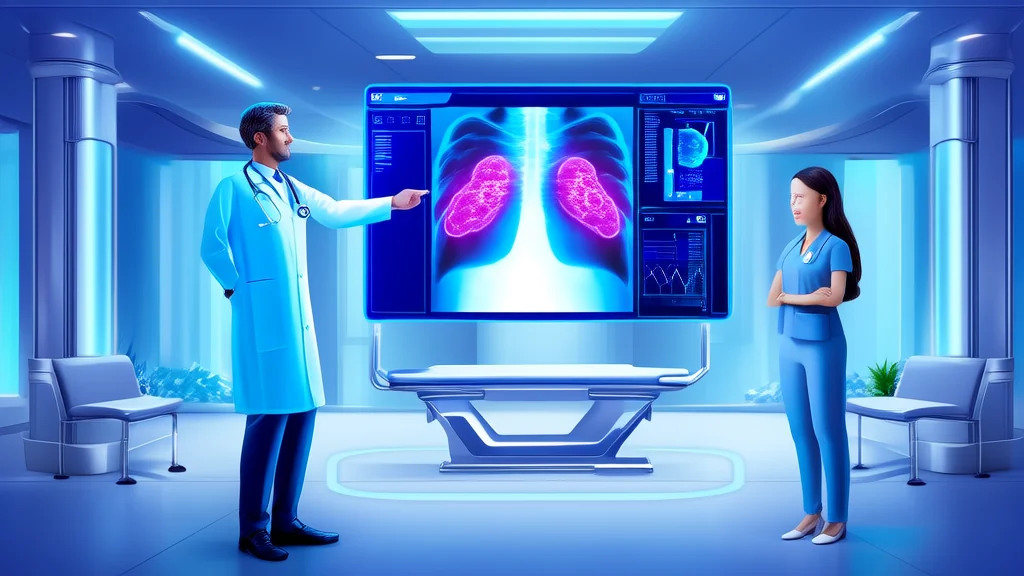Transforming the World: How AI is Reshaping Industries and Everyday Life
Artificial Intelligence (AI) is no longer a distant concept; it's a transformative force that's already reshaping various sectors, from healthcare to retail. In this blog post, we'll explore some of the most impactful and practical applications of AI, highlighting real-world examples and their implications for businesses and society.
AI in Healthcare: Revolutionizing Patient Care and Diagnostics
In the healthcare industry, AI is making significant strides in improving patient care and diagnostics. One of the most notable advancements is the use of AI-powered diagnostic tools, which can analyze medical images with unprecedented accuracy and speed. For instance, Google Health has developed an AI system that can detect breast cancer in mammograms 11.5% more accurately than human radiologists. This not only reduces the likelihood of missed diagnoses but also helps in early detection, potentially saving lives.
Practical Impact: The implementation of such AI systems can significantly reduce the workload on healthcare professionals, allowing them to focus on more complex cases. It also means faster and more accurate diagnoses, leading to better treatment outcomes for patients.
Real-World Example: In the UK, the NHS has partnered with Google Health to pilot this AI system in several hospitals. The results have been promising, with a noticeable improvement in the accuracy of breast cancer detection.
Future Implications: As AI continues to evolve, we can expect to see more sophisticated diagnostic tools that can detect a wider range of diseases. This will not only improve patient care but also make healthcare more efficient and accessible.
AI in Retail: Personalizing the Shopping Experience
The retail industry is leveraging AI to create personalized shopping experiences that cater to individual customer preferences. Companies like Amazon and Alibaba are using AI to analyze customer data and provide tailored product recommendations. For example, Amazon's recommendation engine uses machine learning algorithms to suggest products based on a user's browsing history, purchase behavior, and even the time of day they shop.
Practical Impact: Personalized recommendations lead to higher customer satisfaction and increased sales. According to a study by Bloomreach, 80% of consumers are more likely to make a purchase when brands offer personalized experiences. This not only boosts revenue but also enhances brand loyalty.
Real-World Example: Alibaba's Tmall, one of the world's largest e-commerce platforms, uses AI to personalize the shopping experience for its millions of users. By analyzing vast amounts of data, Tmall can predict what products a user is likely to be interested in and present them in a way that maximizes engagement and conversions.
Future Implications: As AI becomes more advanced, we can expect to see even more sophisticated personalization, including real-time adjustments based on a user's current context and mood. This will further enhance the shopping experience and drive growth in the retail sector.
AI Startups: Innovating for a Better Future
The startup ecosystem is buzzing with innovative AI companies that are tackling some of the world's most pressing challenges. One such company is Climate AI, which uses AI to help farmers make more informed decisions about crop management. By analyzing weather patterns, soil conditions, and other environmental factors, Climate AI provides actionable insights that can increase crop yields and reduce waste.
Practical Impact: For farmers, these insights mean better planning and resource allocation, leading to higher productivity and sustainability. This is particularly important in regions where climate change is having a significant impact on agriculture.
Real-World Example: In India, Climate AI has partnered with local farmers to implement its AI-driven solutions. The results have been impressive, with farmers reporting up to a 20% increase in crop yields and a 15% reduction in water usage.
Future Implications: As more startups like Climate AI emerge, we can expect to see AI playing a crucial role in addressing global challenges such as food security, climate change, and resource management. These innovations will not only benefit the agricultural sector but also contribute to a more sustainable future for all.
As AI continues to evolve, its real-world applications are becoming more diverse and impactful. From revolutionizing healthcare to personalizing the shopping experience and driving innovation in the startup ecosystem, AI is transforming the way we live and work. Stay tuned for more updates on how AI is shaping our future!
